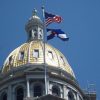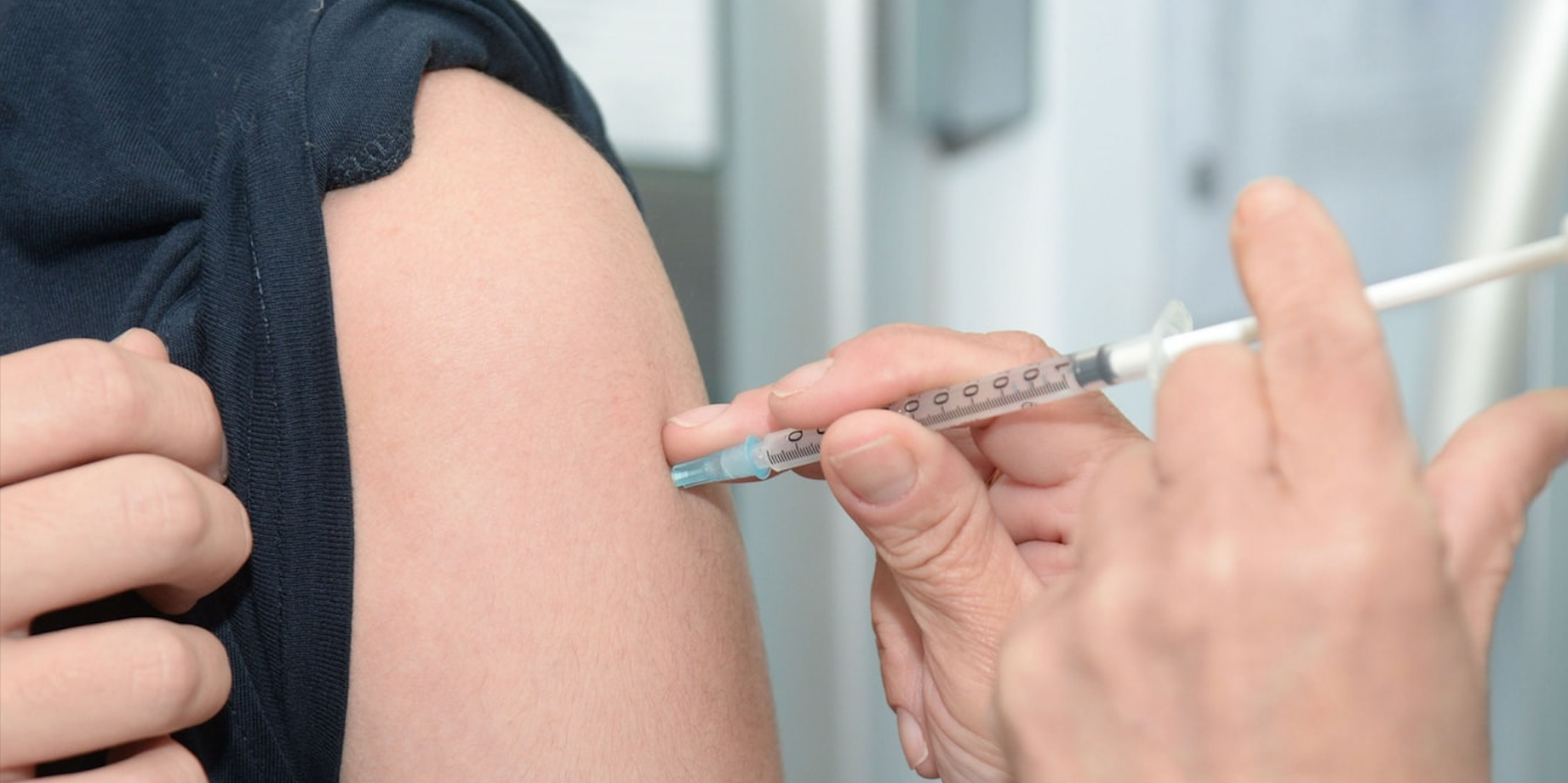WASHINGTON — Members of Congress were among the first people in the U.S. to have access to the sought-after COVID-19 vaccine when the initial doses became available in December.
Three months later, a States Newsroom survey across 22 states — making up a large swath of Congress — found at least 155 members of the U.S. House and Senate have been vaccinated, based on a tally of responses from their offices and other public statements.
Most, but not all, are Democrats, even as pollsters find greater hesitancy and even disinterest among Republicans in the broader U.S. adult population when it comes to the vaccine.
At least 14 legislators say they have not been vaccinated, either because they have been waiting to do so or because they don’t plan to at all.
All but one are Republicans. Dozens of others among the 237 surveyed declined to share their vaccination status.
The race to inoculate the nation has become even more urgent in recent days as states loosen mask and social distancing requirements and infections in some places rise. “Our work is far from over,” President Joe Biden warned on Monday. “The war against COVID-19 is far from won. This is deadly serious.”
There’s no definitive public tally of how many lawmakers have rolled up their sleeves for a shot: Members of Congress are not under an obligation to publicly disclose their vaccination status.
But the public aspects of their elected roles are one reason that they were among the first people allowed to receive the limited doses, in line ahead of other groups.
Many of the vaccinated legislators, such as Sen. John Hickenlooper, have posted on social media about receiving a shot, seeking to build confidence for the newly authorized vaccines by showing their willingness to have a needle in their own arms.
States Newsroom found at least 155 lawmakers out of 237 representing States Newsroom’s 22 states in the U.S. House and Senate have been vaccinated. That figure includes 100 Democrats, 54 Republicans and one independent.
Another 68 lawmakers — 64 Republicans and four Democrats — declined to share, or did not respond to questions about, their vaccination status.
States Newsroom conducted the survey after House Minority Leader Kevin McCarthy (R-Calif.) claimed in a letter to House Speaker Nancy Pelosi (D-Calif.) earlier this month that “roughly 75 percent of House members have been fully vaccinated, or will be by the end of this week.” McCarthy did not specify how he obtained that estimate.
The 155 lawmakers who responded “yes” to States Newsroom account for 65% of the total lawmakers from the states surveyed. Breaking it down by chamber, 61% of the House lawmakers from those states responded that they have been vaccinated, and 84% of senators. Additional members may have been vaccinated already among those who declined to answer.
A House upended
McCarthy’s estimate that 75% of House lawmakers have been vaccinated was tucked in a letter calling for the legislative chamber to return to more normal operations.
As with other workplaces, the pandemic upended how business is conducted in Congress.
The 435 members of the House of Representatives and the 100 senators work in close quarters and travel across the country on a weekly basis, putting them at higher risk of becoming infected with COVID-19 and spreading the virus to constituents who may encounter them at home.
With the average age for House members at 58 and senators averaging 64, many lawmakers also were at increased risk of severe complications or even death if they contracted the virus. (One member of Congress, Rep. Ron Wright (R-Texas) died in February after being diagnosed with COVID-19, and Luke Letlow, who was elected to represent a Louisiana district in December, passed away from complications of the virus before he could be sworn in.)
More than 60 members of Congress have tested positive for COVID-19 since the pandemic began, such as Colorado Reps. Doug Lamborn and Ed Perlmutter, according to a tally by NPR, and more have quarantined due to potential exposure.
The chamber has altered voting rules to allow members to cast a vote by proxy; they’ve extended the length of time for votes to limit how many people are in the chamber; and hearings have switched a virtual or hybrid format.
Reaching a critical mass of vaccinations among members of Congress and their staffers could allow for reversing some of those changes.
Some have been outspoken advocates for the vaccine. Rep. Mariannette Miller-Meeks (R-Iowa), who is a doctor, posted on Twitter about administering vaccines and is visiting all 24 counties in her congressional district to promote vaccinations.
Among those who haven’t received a vaccine, the reasons have varied. One common response is that the unvaccinated lawmakers previously tested positive for COVID-19.
A spokesman for Rep. Mike Kelly (R-Pa.), who tested positive in March 2020, said the congressman “is consulting with his doctor about if and when it will be appropriate to get the vaccine, particularly because he wants to ensure he can continue donating plasma to help people currently suffering with the disease.”
Rep. Ted Budd (R-N.C.), who also had COVID-19, does eventually plan to get vaccinated, according to his spokesman, Curtis Kalin. But Kalin added the congressman “felt that since he has the antibodies for a while, he was going to wait and let others get the vaccine first.”
Others, such as freshman Rep. Marjorie Taylor Greene (R-Ga.), said they don’t see a need to get a vaccine.
“She is a perfectly healthy woman and doesn’t see a reason to do so,” Greene’s spokesman, Nick Dyer, said.
Public opinion leans toward vaccination
Beyond Congress, a growing number of Americans now say they have either gotten a vaccine, or intend to do so, according to a Pew Research Center report published this month.
Among U.S. adults, 19% say they have already received at least one vaccine dose, and another 50% say they definitely or probably plan to get vaccinated. Those categories account for 69% of the public — up from 60% who said in November that they planned to get vaccinated.
But as with Congress, those vaccination intentions show differences along partisan lines. Democrats are 27 percentage points more likely than Republicans to say they plan to get or have received a coronavirus vaccine, 83% to 56%.
There also have been racial differences in who is planning to seek a vaccine, though the Pew researchers found those to be shrinking. A majority of Black Americans, 61%, now say they plan to get a COVID-19 vaccine or have already received one, up from 42% in November.
Some reports have cautioned against characterizing Black Americans as hesitant to get the vaccine, arguing that access to vaccine doses is just as much of a problem.
Rep. Cori Bush, a Black freshman Democrat from Missouri who had COVID-19, shared her own hesitation about receiving a vaccine during a video conversation she taped in January for The Root with epidemiologist and anti-racism activist Dr. Camara Phyllis.
In promoting that video conversation, Bush posted that she would be taking the vaccine, but her office did not respond to questions about whether she has since done so. In the video, Bush describes what she called the “elephant in the room, which is the reluctance of many Black people like me to even get the COVID-19 vaccine.”
“I want to keep myself safe, my family, my loved ones, my staff, and everyone around me, and my community safe,” Bush says in the video. “My thought process was, I want to take the vaccination. I was apprehensive not having enough information, and I wanted to be able to show people the kind of conversation that you can have with your health care provider.”
Contributing to this report were Danielle J. Brown, Tyler Buchanan, Tim Carpenter, Laura Cassels, Ruth Conniff, Clark Corbin, Susan Demas, Jeremy Duda, Darrell Ehrlick, Jason Hancock, Josh Kurtz, Jerod MacDonald-Evoy, Kate Masters, Holly McCall, Lauren McCauley, John Micek, Graham Moomaw, Wesley Muller, Jill Nolin, Kathie Obradovich, Diane Rado, Rob Schofield, Gracie Stockton, Annmarie Timmins, Sarah Vogelsong, Quentin Young and Robert Zullo
This op-ed was originally posted at Colorado Newsline, with contributions from States Newsroom staff in multiple states.




